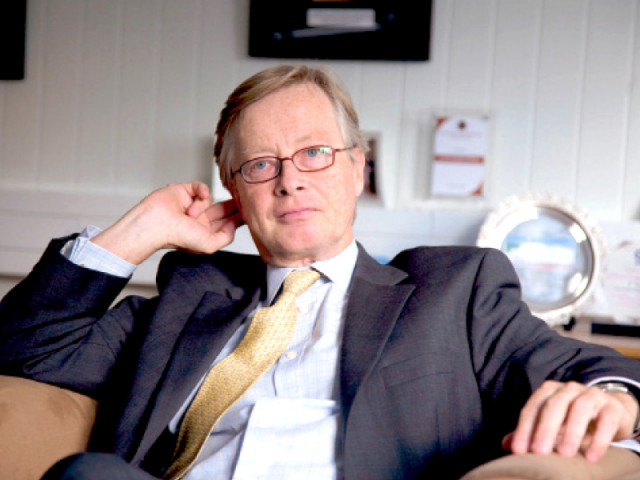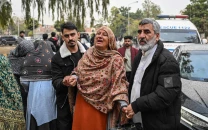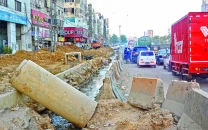Interview with the ambassador: Netherlands to stop aid for education sector after 2014
Scheltema says his government intends to prioritise education in least developed countries.

The government of Netherlands has decided to stop bilateral support for Pakistan’s education sector after 2014, once ongoing projects have been completed. This was stated by Ambassador of the Netherlands H Gajus Scheltema during an exclusive interview with The Express Tribune.
“The reason why we’re stopping support for the education sector is because Pakistan does not fall in the category of least developed countries, which are our priority after 2014,” said the ambassador. “Moreover, we don’t get the required results from our investments because of security challenges in certain restive parts of the country,” Scheltema reasoned, adding that lack of resources with the Dutch government was another consideration.
The ambassador said that while direct funds will not be given to the government or non-governmental organisations in Pakistan, the Dutch government will still promote the country’s education sector through international development agencies, such as The United Nations Children’s Fund (UNICEF) and United Nations Development Programme (UNDP).
Scheltema said his government is currently supporting 40 development projects in various sectors in Pakistan, adding that the total value of the projects exceeds $233 million. He said that of the total projects, 11, worth over $134 million, are in the education sector. The ambassador said that the projects were launched in 2006 and are expected to be completed by 2015. He said that the over 600,000 students are benefiting from these projects and the number is expected to increase by 2015.
The ambassador underscored the need to allocate more funds for the education sector and expressed concern for the 20 million children in Pakistan that are out of school. “A country cannot make progress without educating the youth,” he added.
Change in strategy
Scheltema said that for Pakistan, the Dutch government’s strategy has shifted from “more aid to more trade”. He said that Pakistan’s agriculture, dairy, horticulture and energy sectors have much potential for promoting trade and investment, adding that its energy sector has “huge potential” but remains untapped. He urged international investment companies to help harness these resources and asked the government to create an atmosphere conducive to investment.
Security situation and other challenges
The Dutch envoy said that Pakistan’s security situation is “not ideal, but manageable”. He said the government has faced security challenges while executing projects particularly in Balochistan and Khyber-Pakhtunkhwa, where a large number of children are out of school.
He said “other challenges” include bureaucratic hurdles while issuing visas to technical experts and staff of non-governmental organisations. “However, the overall response is positive and authorities realise the importance of these development projects,” he added.
Strengthening the regional security situation, he said, is crucial to help create an atmosphere favourable for investment and trade. “Netherland and other member countries of the European Union are willing to extend their support for the cause,” Scheltema said.
On support for other sectors
While support for the education sector will be stopped, the ambassador said that bilateral projects related to social development and the water sector will continue.
He said his government will continue to provide equipment and technical support for water management, provision of clean drinking water and installation of waste-water treatment plants. “Our support will continue for promoting women and minorities rights and for their participation in the upcoming elections,” he added.
Scheltema said his government is in favour of women and minorities contesting in direct elections instead of entering assemblies through reserved seats. “We think that quota should be reserved for women and minorities within political parties,” he added. The ambassador said he is in favour of local elections as they allow the people to get their issues addressed at the grassroot level.
Published in The Express Tribune, August 5th, 2012.



















COMMENTS
Comments are moderated and generally will be posted if they are on-topic and not abusive.
For more information, please see our Comments FAQ